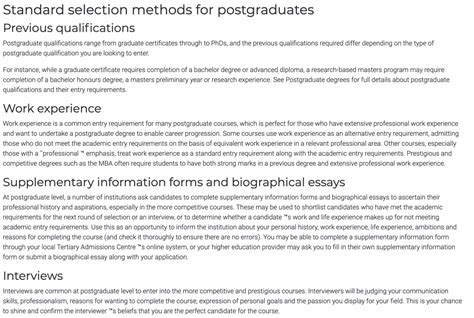As you embark on the daunting task of crafting your personal statement, determining its ideal length is crucial. While there is no universal prescription, guidelines exist to help you navigate this writing odyssey.

Word Count Guidelines
The appropriate word count for your personal statement depends on the specific requirements of your application. However, general guidelines offer a starting point:
- Common App: 250–650 words
- UC Personal Insight Questions: 250–350 words each
- Graduate School Applications (e.g., MBA, Law): 500–1,000 words
Length Considerations
Beyond the word count, consider the following factors when determining the appropriate length:
- Type of Application: Personal statements for scholarship applications or graduate school admissions may require a more comprehensive length to showcase your qualifications.
- Topic and Depth: The complexity and depth of your topic will influence the length. A highly personal or nuanced topic may warrant a longer statement.
- Admissions Criteria: Review the admissions criteria for the program or institution you are applying to. They may specify length preferences or provide guidance on what to include.
- Conciseness: While it is important to provide sufficient detail, avoid excessive length. Admissions officers are often pressed for time and appreciate concise and impactful statements.
Tables
| Application Type | Word Count Range | Average Length |
|---|---|---|
| Common App | 250–650 | 450–550 |
| UC Personal Insight Questions | 250–350 | 280–320 |
| Graduate School (MBA, Law) | 500–1,000 | 650–750 |
| Scholarship Applications | 500–1,500 | 800–1,000 |
| Length Considerations | Impact |
|---|---|
| Type of Application | Determines the level of detail and specificity required. |
| Topic and Depth | The complexity and nuances of your topic influence the necessary word count. |
| Admissions Criteria | Refer to the admissions criteria for specific length requirements or guidance. |
| Conciseness | Admissions officers prefer concise and impactful statements that convey your message effectively. |
Strategies
- Brainstorm your ideas: Start with a brainstorming session to identify the key points you want to convey.
- Create an outline: Organize your thoughts into a logical outline, ensuring a smooth flow of ideas.
- Draft your statement: Expand on your outline, using vivid language and specific examples to support your claims.
- Edit and refine: Carefully review your draft, removing unnecessary words and ensuring clarity and conciseness.
- Seek feedback: Ask a trusted friend, family member, or mentor to provide feedback on your statement.
Common Mistakes to Avoid
- Exceeding the word count: Adhere to the specified word count or risk your statement being cut off or dismissed as unfocused.
- Insufficient detail: Provide specific examples and anecdotes to illustrate your points and demonstrate your experiences and qualities.
- Rambling or off-topic: Stay focused on the main topic and avoid tangents or irrelevant information.
- Poor grammar and spelling: Ensure your statement is free of grammatical errors and misspellings, as they can detract from your credibility.
- Lack of originality: Avoid clichés or overly common phrases. Instead, strive to present your unique perspective and experiences.
Conclusion
Determining the appropriate length for your personal statement is a fine balance between providing sufficient information and maintaining conciseness. By considering the guidelines outlined above, you can craft a statement that showcases your strengths and sets you apart as a standout candidate.
